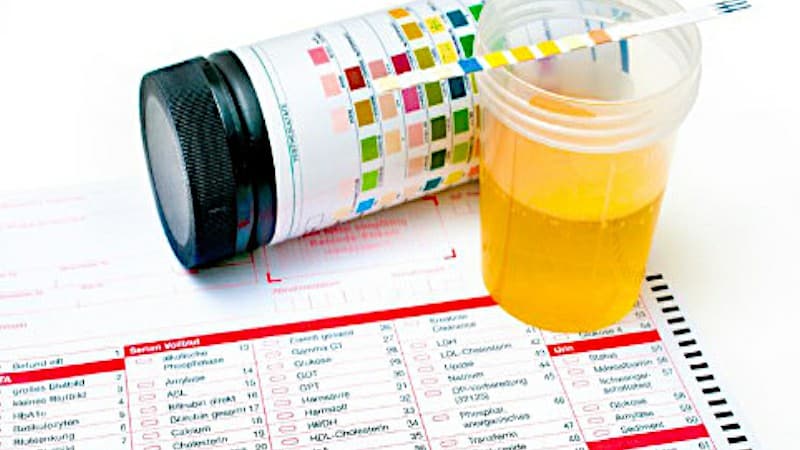In our exploration of at-home STD test kits, we’ll dive into their convenience and privacy benefits, discuss the range of detectable STIs, consider financial factors, and emphasize the importance of regular testing. We’ll also touch on accuracy, managing results, and the role of telemedicine, while addressing legal and ethical considerations. Lastly, we’ll emphasize safer sex practices and offer final thoughts on the value of these kits. If you’re looking for more insights on sexual health, you’re in the right place.
Table of Contents
- Understanding At-Home STD Test Kits
- Privacy and Convenience of Home Testing
- Range of STIs Detectable with At-Home Kits
- Financial Considerations in Test Selection
- The Importance of Regular STD Testing
- Accuracy and Reliability of At-Home STD Tests
- Managing False Results and Understanding Test Outcomes
- Post-Test Medical Advice and Support
- Comparative Analysis of Different At-Home STD Test Kits
- The Role of Telemedicine in STD Testing and Consultation
- Legal and Ethical Considerations in Self-Testing
- Debunking Common Myths
- Incorporating Safer Sex Practices
- Final Thoughts on STD Kits
- Want More Useful Articles?
Understanding At-Home STD Test Kits
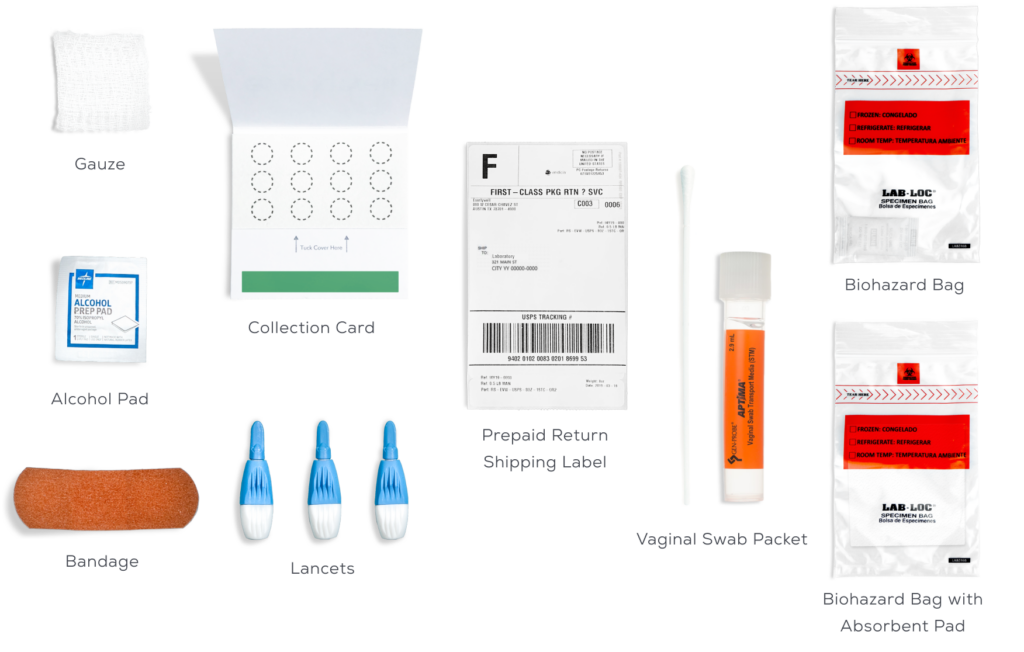
At-home STD test kits represent a significant breakthrough in personal health monitoring. They offer a convenient, confidential way to check for sexually transmitted diseases from the comfort of your home. But what exactly are these kits, and how do they work?
- Definition: At-home STD test kits are medical tools designed for individuals to use at home to detect the presence of sexually transmitted diseases.
- Functioning: These kits typically require a biological sample, such as urine, blood, or a swab. The samples are then sent to a lab for analysis, with results delivered privately, often online.
- Range of Tests: These kits can test for a variety of STDs, including both bacterial infections like chlamydia and gonorrhea, and viral infections like HIV and herpes.
Privacy and Convenience of Home Testing

At-home STD test kits significantly enhance user privacy and convenience, key factors in their growing popularity.
- Privacy as a Priority: These kits address the stigma and discomfort associated with visiting clinics for STD testing. By enabling testing in the privacy of one’s home, they cater to individuals who seek discretion in sensitive health matters.
- Ease of Use: The kits are designed for simplicity, with clear instructions that make them accessible even for those without medical training. This ease of use extends to sample collection, whether it involves a swab, urine, or blood sample.
- Anonymity and Data Security: To protect user privacy, results are linked to a unique ID number instead of personal details. Additionally, stringent data security measures are in place to safeguard personal health information.
Range of STIs Detectable with At-Home Kits

The scope of STIs that can be tested using at-home kits is continually expanding, offering comprehensive screening options.
- List of Commonly Tested STIs: Most at-home STD test kits cover common infections like chlamydia, gonorrhea, syphilis, HIV, and hepatitis. The inclusion of multiple infections in one kit allows for a broader screening.
- Advancements in Testing Technologies: Continuous research and development are leading to the inclusion of more STIs in these kits. For example, recent advancements have enabled the accurate home testing of infections like trichomoniasis, which was previously more challenging to diagnose at home.
- Understanding Test Limitations: It’s important to be aware of the limitations of each kit. For instance, some tests might be more effective in detecting infections in certain bodily fluids than others, affecting their applicability to different STIs.
Financial Considerations in Test Selection
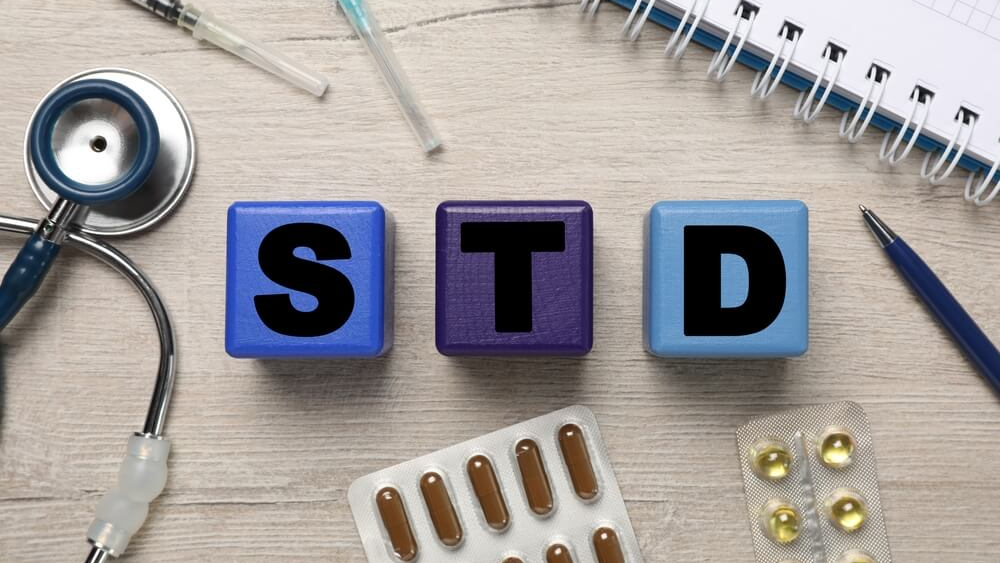
The cost and affordability of at-home STD test kits are significant factors affecting their accessibility and use.
- Price Range and Influencing Factors: Prices of at-home STD test kits can vary, typically ranging from $50 to over $200. The price is influenced by factors like the comprehensiveness of the test, the brand, and included services such as lab fees or post-test consultations.
- Insurance Coverage and Financial Aid: Some health insurance plans cover the cost of at-home STD testing. Additionally, various programs and NGOs offer financial assistance or subsidized rates to make testing more accessible to those in need.
- Economic Impact on Access: A study by the Kaiser Family Foundation found that cost is a major barrier to STD testing, particularly among young adults and low-income populations. Making affordable testing options available is crucial for broadening access.
| Name of Testing Kit | Range of STIs Tested | Price Range (Approximate) | Additional Metric |
|---|---|---|---|
| LetsGetChecked | Chlamydia, Gonorrhea, HIV, Herpes, Syphilis, more | $69 – $199 | Turnaround Time |
| myLAB Box | Chlamydia, Gonorrhea, HIV, Trichomoniasis, more | $79 – $249 | Discreet Packaging |
| Everlywell | Chlamydia, Gonorrhea, HIV, Herpes, Syphilis, more | $49 – $199 | Physician Consult |
| STDCheck | Chlamydia, Gonorrhea, HIV, Herpes, Syphilis, more | $24 – $299 | Largest Test Panel |
The Importance of Regular STD Testing
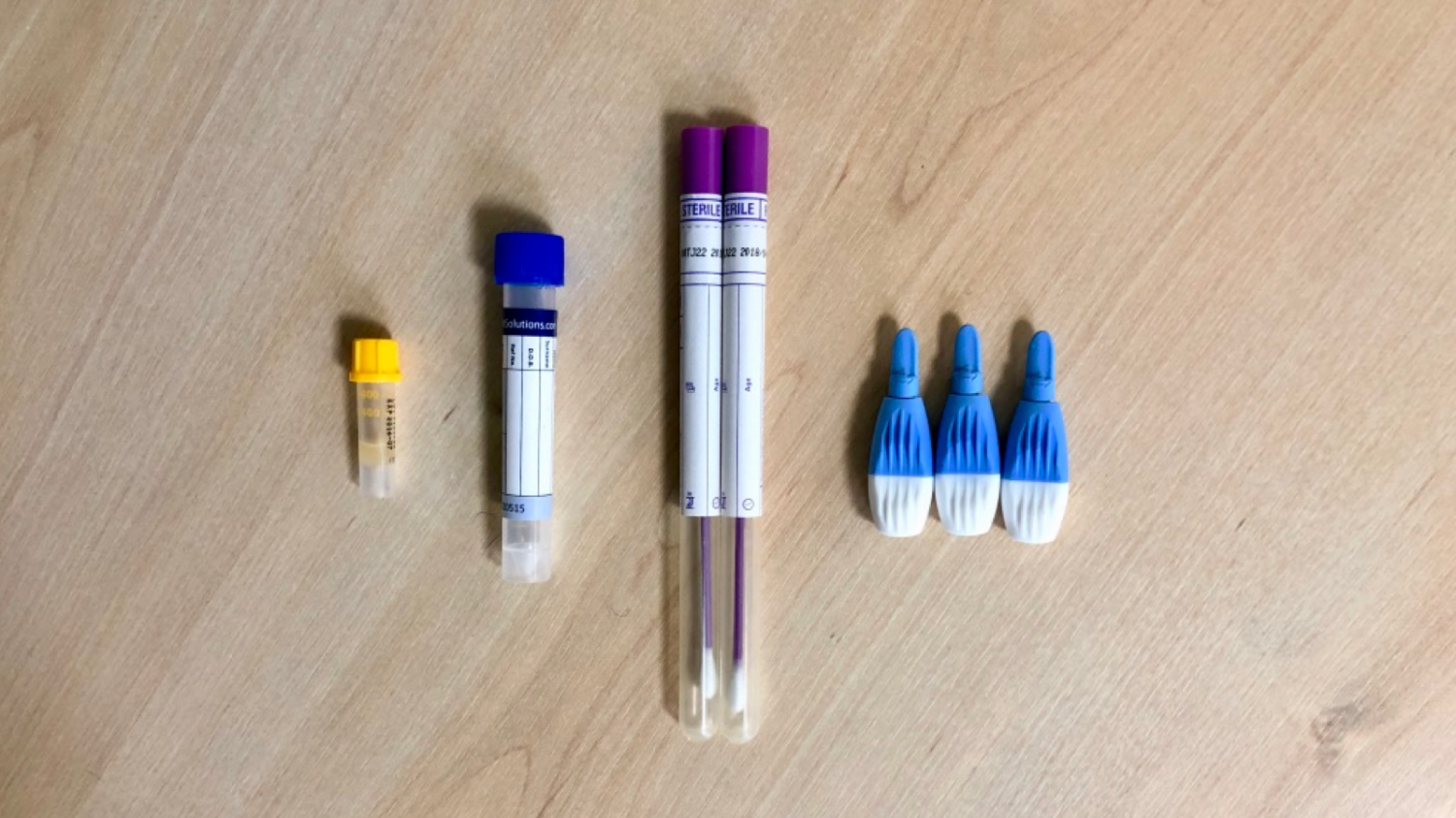
Why is regular STD testing so important, even if you feel healthy? The reasons are both personal and societal.
- Individual Health: Regular testing is crucial for early detection and treatment, helping prevent severe health complications.
- Statistical Data: According to the Centers for Disease Control and Prevention (CDC), millions of new STD infections occur each year, many of which go undiagnosed.
- Public Health: Widespread testing helps control the spread of STDs in the community, benefiting public health at large.
- U.S. Testing Landscape: In the U.S., both free and paid testing options are available. Free testing is often offered at public health clinics, while at-home test kits are typically paid services.
Accuracy and Reliability of At-Home STD Tests
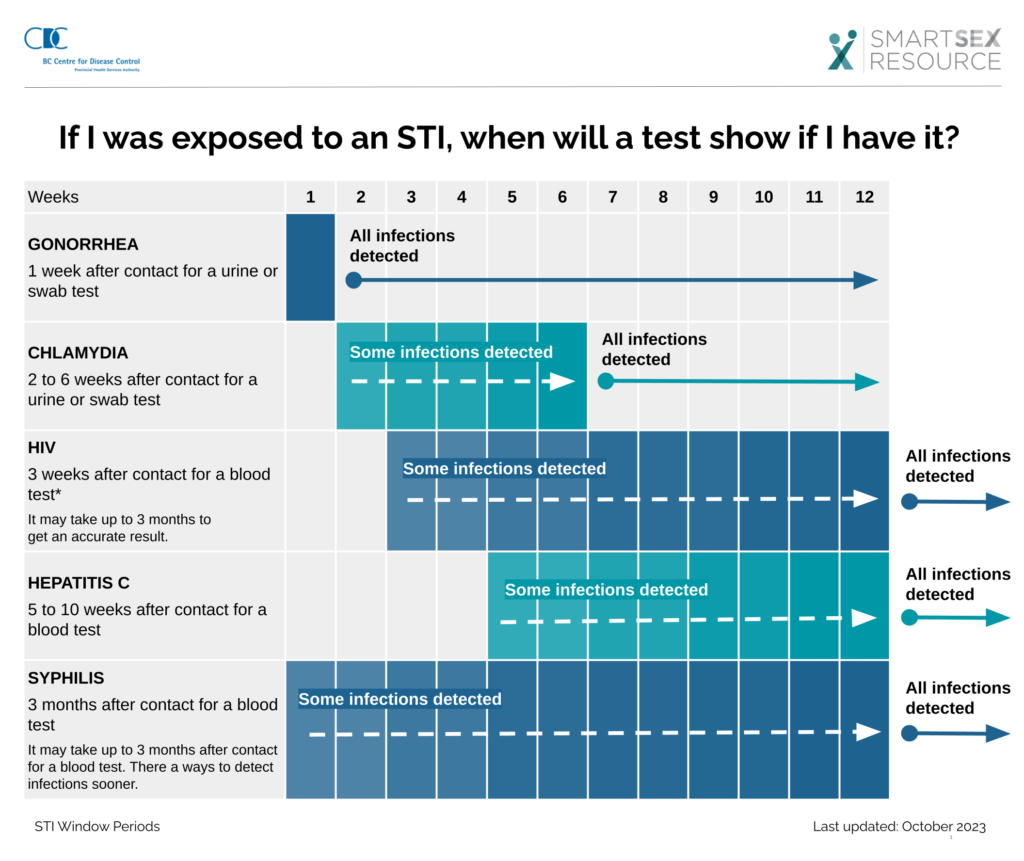
The accuracy and reliability of at-home STD tests are crucial for their efficacy.
- Scientific Foundation: These kits are developed through extensive research, ensuring a high level of accuracy. Studies indicate that some FDA-approved at-home tests have shown over 95% accuracy in detecting certain STDs.
- Reliability Compared to Clinical Tests: When used as directed, the accuracy of at-home tests is comparable to clinical testing. For instance, HIV self-tests have shown similar sensitivity and specificity to tests conducted in healthcare settings.
- Correct Usage Impact: The validity of results hinges on proper usage. Missteps in sample collection or timing can lead to incorrect results. Following the instructions meticulously is therefore vital.
Comparison of At-Home STD Testing Companies
| Name of Testing Company | Sensitivity | Specificity | FDA Approval | Clinical Validation | User Reviews | Test Type | Manufacturer Reputation | Customer Support |
|---|---|---|---|---|---|---|---|---|
| LetsGetChecked | High | High | Yes | Available | Positive | Various | Established | Available |
| myLAB Box | High | High | Yes | Available | Positive | Various | Established | Available |
| Everlywell | High | High | Yes | Available | Positive | Various | Established | Available |
| STDCheck | High | High | Yes | Available | Positive | Various | Established | Available |
Please keep in mind that the availability of specific metrics and information may change over time. For the most current and detailed information on these at-home STD testing kits, it is recommended to visit the official websites of these companies and consult recent reviews and healthcare professionals if needed.
Managing False Results and Understanding Test Outcomes
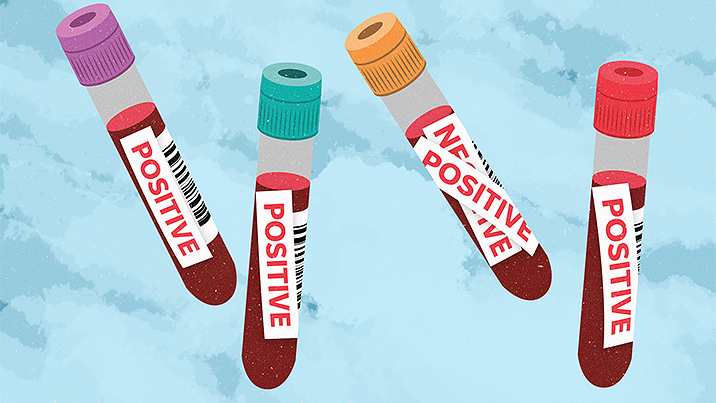
Handling the outcomes of at-home STD tests is a critical aspect of sexual health management.
- False Results Dynamics: False positives and negatives are rare but possible. For example, the rate of false positives in certain at-home HIV tests is less than 1%.
- Importance of Confirmatory Testing: A positive result from an at-home test should always be followed up with professional testing. The CDC recommends confirmatory testing to validate initial positive results.
- Seeking Expert Interpretation: In cases of unexpected results, consulting a healthcare professional ensures correct interpretation and appropriate action, reducing the risk of misdiagnosis.
Post-Test Medical Advice and Support
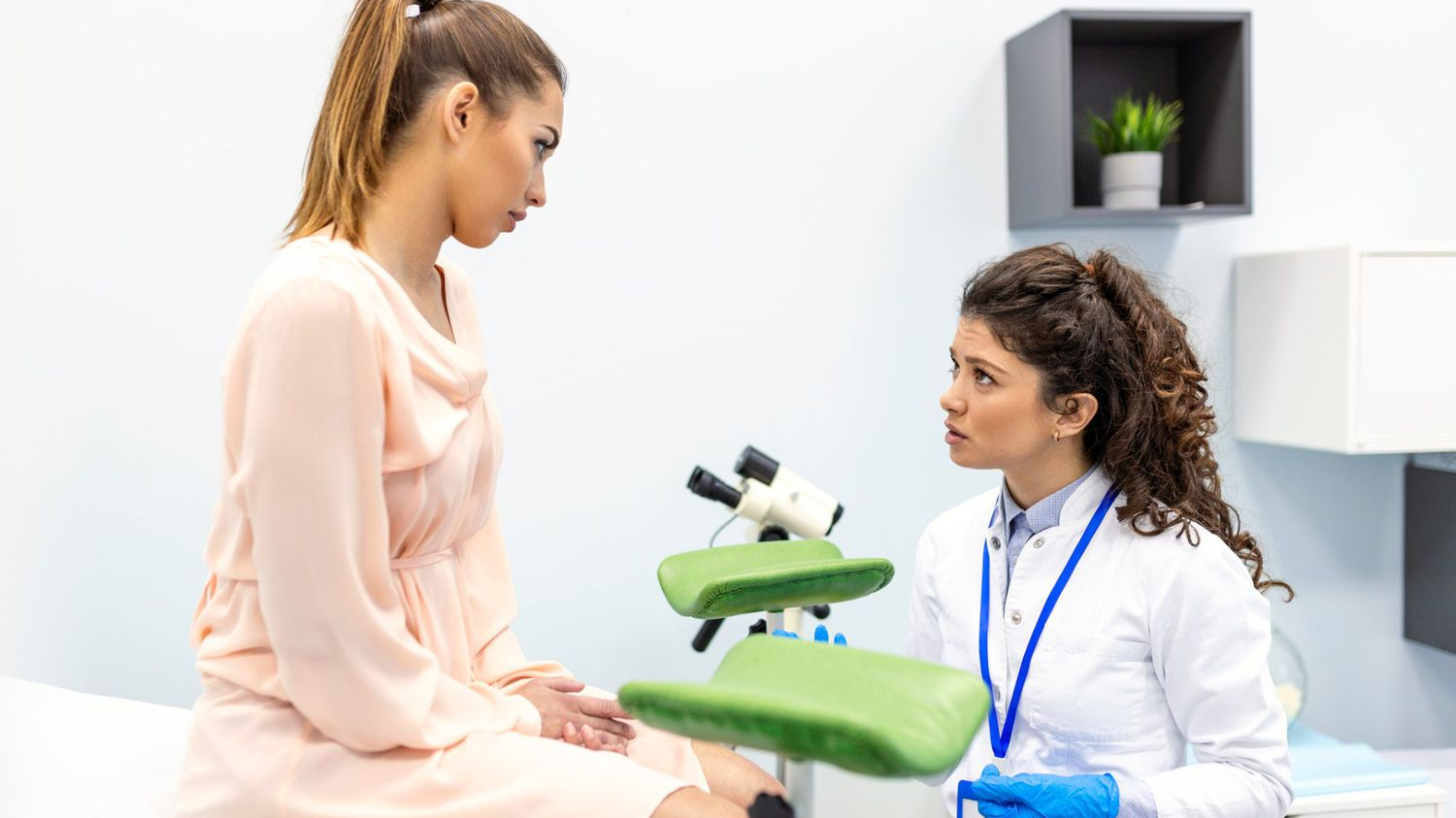
The role of professional medical advice following an at-home STD test is fundamental.
- Professional Consultation Necessity: After receiving any positive or inconclusive result, a visit to a healthcare provider is essential. This step is crucial for accurate diagnosis and exploring treatment options.
- Guided Treatment Pathways: Healthcare professionals can offer tailored treatment and care plans, considering the specific STD and individual health context.
- Support Beyond the Physical: Dealing with STDs can be emotionally challenging. Access to mental health professionals and support groups is important for coping with the psychological aspects of diagnosis and treatment.
Comparative Analysis of Different At-Home STD Test Kits
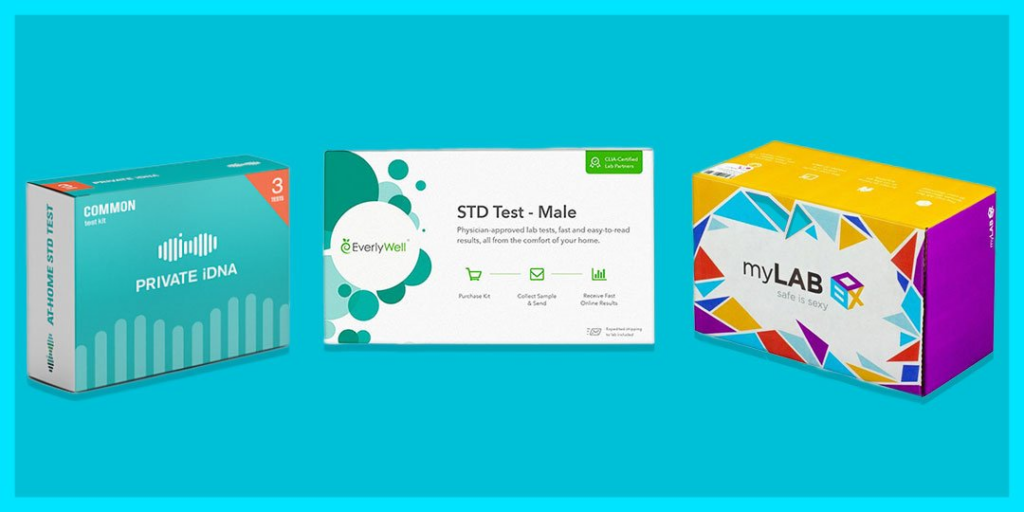
A closer examination of various at-home STD test kits reveals significant differences that can guide consumer choice.
- Brand Features: Brands differ in the STDs they test for, their technological approach to testing, and the sensitivity and specificity of the tests. Some offer comprehensive panels for multiple infections, while others focus on specific STDs.
- Cost Range: The cost of these kits in the U.S. typically ranges from $50 to over $200, often inclusive of lab fees and post-test consultation services. It’s essential to balance cost against the comprehensiveness and accuracy of the kit.
- User Reviews and Efficacy Reports: User reviews provide insights into real-world effectiveness and user experience. Pay attention to feedback regarding the ease of sample collection, clarity of instructions, and customer support responsiveness.
The Role of Telemedicine in STD Testing and Consultation
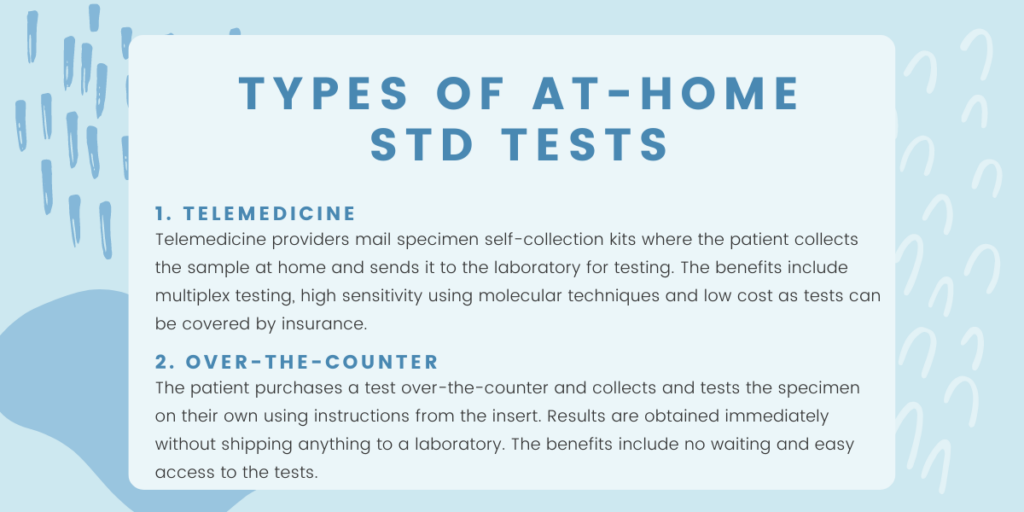
Telemedicine plays a transformative role in at-home STD testing, particularly in post-testing support and consultation.
- Expanding Healthcare Reach: Telemedicine facilitates access to healthcare advice for individuals in remote or underserved areas, significantly impacting public health. It’s particularly beneficial for those far from healthcare facilities or with mobility limitations.
- Comprehensive Post-Testing Support: Telemedicine platforms provide a confidential environment for consultations with healthcare professionals after testing. This service is invaluable for interpreting results, understanding potential treatments, and discussing preventive measures.
- Case Studies of Telemedicine Impact: Various success stories illustrate how telemedicine has improved STD diagnosis and management, including cases where prompt teleconsultations led to early detection and effective treatment.
Legal and Ethical Considerations in Self-Testing
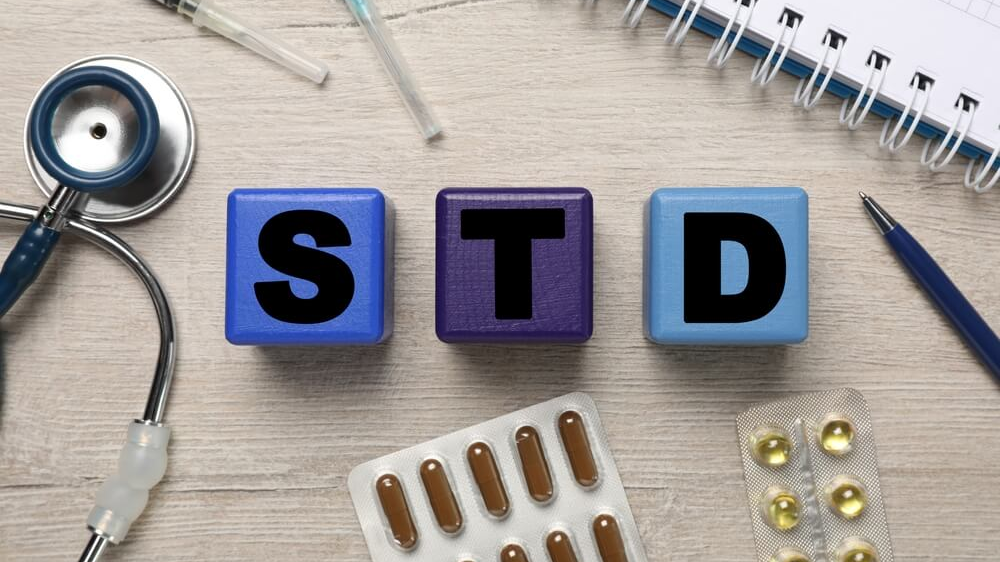
Navigating the legal and ethical landscape is a critical aspect of at-home STD testing.
- Self-Diagnosis Implications: At-home testing raises questions about the implications of self-diagnosis. Users must be aware of their responsibility in accurately interpreting and acting on test results.
- Data Handling and Ethics: The ethical considerations around the handling and sharing of test results are paramount. Companies typically adhere to strict privacy laws like HIPAA in the U.S., ensuring confidentiality and ethical use of data.
- Regulatory Standards: In the U.S., the FDA regulates at-home STD test kits to ensure they meet standards for accuracy, reliability, and safety. Familiarizing oneself with these regulations can aid in making informed choices about the kits.
Debunking Common Myths

To foster a better understanding of at-home STD testing, it’s important to address common myths and present the facts.
- Myth: At-home STD tests aren’t necessary for people in monogamous relationships.
- Fact: Even in monogamous relationships, regular testing is important. Infections can be asymptomatic or might have been contracted before the relationship started.
- Myth: Young adults don’t need to worry about STDs.
- Fact: Young adults are actually at a higher risk for STDs. The CDC reports that individuals aged 15-24 account for half of all new STD infections each year.
- Myth: At-home tests can replace regular doctor visits.
- Fact: While at-home tests are a useful tool for regular monitoring, they don’t replace the need for periodic consultations with healthcare professionals for comprehensive sexual health care.
- Myth: At-home STD testing is too expensive to be practical.
- Fact: Many at-home STD tests are affordable, and some may be covered by health insurance. Additionally, NGOs and community programs often offer subsidized or free testing kits for those in need.
- Myth: STD testing is only for those who show symptoms.
- Fact: Many STDs can be asymptomatic for long periods. Regular testing is important for everyone who is sexually active, regardless of the presence or absence of symptoms.
Incorporating Safer Sex Practices

Regular STD testing should be part of a broader strategy of safer sex practices for comprehensive sexual health.
- Overview of Safer Sex Methods: Effective methods include the use of condoms, dental dams, and regular testing, regardless of symptoms. These practices significantly reduce the risk of STD transmission.
- Importance of Regular Testing: Regular at-home or clinical testing is a crucial component of sexual health, especially for sexually active individuals. The CDC recommends routine STD testing for sexually active adults and adolescents.
- Educational Resources: Various health organizations provide educational materials and resources on safer sex practices. Access to reliable information is key to informed decision-making in sexual health.
Final Thoughts on STD Kits
In today’s era of heightened health awareness, at-home STD test kits represent a major advancement in self-care. This guide explores the nuances of sexual health and at-home testing with empathy and detail. We cover the technology of these kits and dispel common myths, providing a comprehensive understanding of how they can play a crucial role in your health management. Join us on this journey of empowerment, combining privacy with proactive care.
Want More Useful Articles?
- Oral Sex STDs 101 – Things to Know Before Opening Your Mouth
- What Are Crabs – STD Facts, Tips, and Myths
- What is PrEP & How to Get It?

